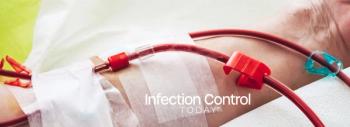
Community Pharmacies are Effective Locations for Rapid HIV Testing
Researchers at Albert Einstein College of Medicine of Yeshiva University have found that community-based pharmacies can be effective locations for offering rapid HIV testing, diagnosing HIV, and connecting those who test positive with medical care quickly. The study publishes online today in the August issue of the journal AIDS Patient Care and STDs.
The Centers for Disease Control and Prevention (CDC) estimates that the number of new HIV infections each year in the United States has remained stubbornly stable for more than a decade at approximately 50,000. More than 1.1 million people in the U.S. are living with HIV. Nearly one in five of that group are unaware they are infected.
There are many reasons why these numbers have not improved, but access to testing likely plays a large role, says Yvette Calderon, MD, lead author of the study. Access to healthcare remains particularly poor among low-income and minority populations groups that shoulder the highest HIV burden. We have been looking for new ways to reach out and offer testing to individuals in these groups and bring them into care if they need it. Calderon is professor of clinical emergency medicine and associate dean for the office of diversity enhancement at Einstein, and adult urgent care director at Jacobi Medical Center.
The Bronx, where Einstein and Jacobi are located, is ethnically diverse and has one of the highest HIV rates in the country, with some groups at much higher risk than others. Nationally, the rate of new infections among African-Americans (8.7 per 100,000) is nearly eight-times greater than that of whites (11.5). Hispanics have the second-highest rate (29.3), which is three times that of whites.
Calderon and her Einstein-Jacobi colleagues Jason Leider, MD, PhD, and Ethan Cowan, MD, MS, formed partnerships with five community-based pharmacies in the Bronx and Manhattan (Chelsea and Hells Kitchen) in an effort to test hard-to-reach, high-risk individuals. Public Health Advocates (PHAs) were trained to approach people in the pharmacies and on the sidewalks outside to offer HIV testing. When an individual agreed, the PHA would administer the rapid HIV test, which needs only a swab of saliva and provides results in 20 minutes.
While waiting for the results, the PHAs asked the participants to fill out an HIV-risk factor and test satisfaction questionnaire, and then counseled them about HIV-risk reduction behavior based on their answers. If the HIV test result was positive, the PHA offered to escort the participant to the HIV clinic at Jacobi or a collaborating HIV clinic near the testing site, where they were seen immediately by an HIV specialist. All participants were allowed to accept or decline the escort. On average, HIV-positive clients saw an HIV specialist less than an hour after being diagnosed.
During 294 testing days, 2,030 individuals agreed to HIV testing, six of whom tested positive. Five of the six agreed to accompany the PHA to a HIV clinic. Further testing revealed that their median CD4 count was 622 white blood cells/mL, indicating they were diagnosed at a relatively earlier stage of infection. (A CD4 count above 500 for someone with HIV in treatment is considered good. The immune system of someone who is HIV-negative person would have a CD4 count of 700 to 1,000. CD4 counts for those who are HIV positive indicate the person has AIDS.)
In many urban areas, community pharmacies play an important role, says Calderon. While New York pharmacies are not currently allowed to provide blood tests or medical care, they do administer vaccines and provide wellness help. Many area residents view the pharmacists as trustworthy and more accessible than doctors and go to them for advice.
Our results demonstrate that pharmacies can effectively supplement the current healthcare system for HIV testing, especially in some of our lower-income communities says Calderon. They could become an important component of an extended network for informing more people to their HIV status and bringing them into care.
Leider is associate professor of clinical medicine at Einstein. Dr. Cowan is assistant professor of emergency medicine at Einstein. In addition to Drs. Calderon, Leider and Cowan, authors on the paper include John Y. Rhee, B.S., and Christopher Brusalis, B.A., at Jacobi.
New York City Department of Health and Mental Hygiene for HIV Priority Population Testing and Gilead Sciences, Inc underwrote the grant for this project. The authors report no conflicts of interest.
Source: Albert Einstein College of Medicine of Yeshiva University
Newsletter
Stay prepared and protected with Infection Control Today's newsletter, delivering essential updates, best practices, and expert insights for infection preventionists.




